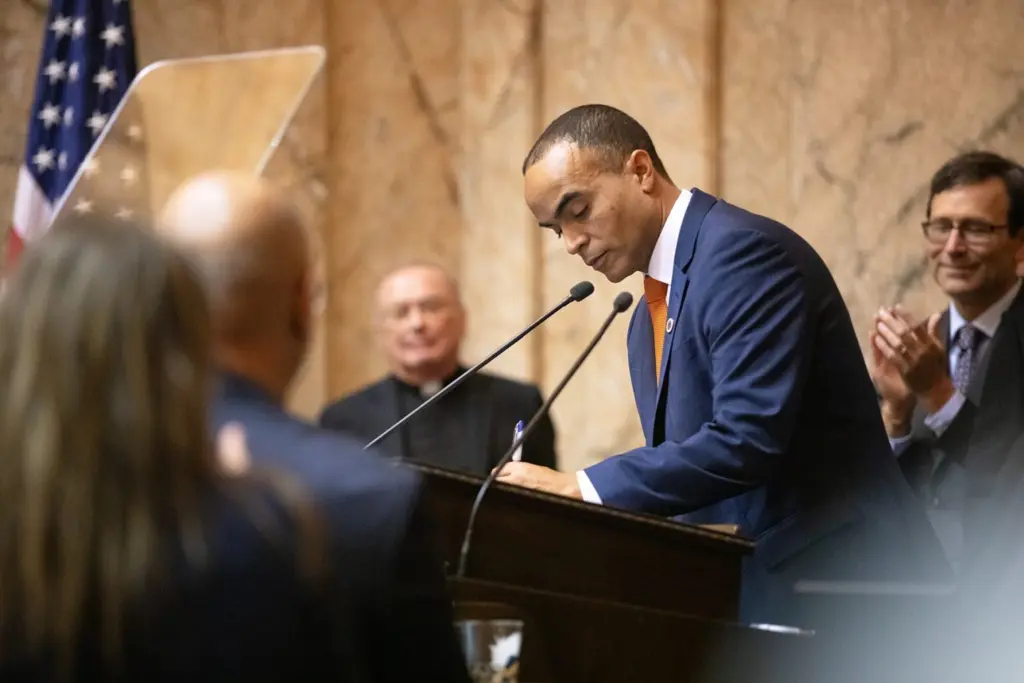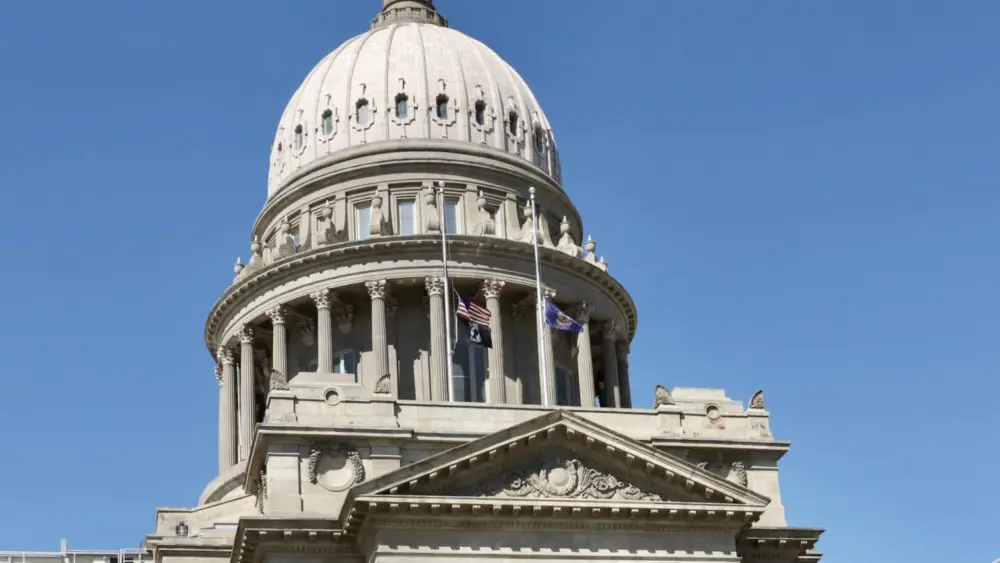OLYMPIA, WA – Washington Attorney General Nick Brown and dozens of his colleagues across the country are calling on tech companies and payment platforms to take action to block computer-generated pornography.
Two letters the bipartisan group of attorneys general sent last month note 98% of fake videos posted online specifically feature so-called deepfake pornography. Almost all target women and girls. Altogether, these videos have received hundreds of millions of views.
This year, the Washington Legislature overwhelmingly approved making the willful distribution of a forged digital likeness, or deepfake, a gross misdemeanor crime. Experts say the law is the first in the nation to impose criminal liability for any malicious deepfake, not just those that are sexual or political. It went into effect late last month.
In recent years, lawmakers have also created a civil cause of action for political candidates depicted in manipulated content that isn’t disclosed as fabricated, and prohibited digitally-altered sexual photographs or videos of children and sharing any fake intimate images.
State AI regulations were at risk earlier this summer when Congress considered banning the rules in its massive tax cut and spending bill. U.S. Sen. Maria Cantwell, a Democrat from Washington, led the push to remove that provision from the sprawling legislation.
At the federal level, President Donald Trump in May signed a new law criminalizing the distribution of revenge pornography, including artificial intelligence-generated deepfakes. The bipartisan law, called the Take It Down Act, requires platforms to allow victims of this type of sexual abuse to request their picture or video be taken down within 48 hours.
One of the letters penned last month asks Visa, Mastercard, American Express, PayPal, Google Pay and Apple Pay to enforce policies prohibiting their services from being used to profit from the disturbing content. In 2020, for example, Visa and Mastercard announced they’d stop processing payments on Pornhub due to videos depicting sexual assault.
Brown and the other attorneys general want similar action on deepfake pornography, arguing that sellers of tools used to make these videos accept money from these credit card companies and payment processors.
“Payment platforms should not only deny sellers the ability to use their services when they are on notice of these connections but should be actively working to identify and remove any such sellers from their network,” the letter reads.
One generative AI company, Civitai, has had to turn to cryptocurrency this year after its payment processor pulled out over concerns about nonconsensual computer-generated content.
A second letter, to the search engine arms of Google, Microsoft and Yahoo, lists two requests.
First, the attorneys general ask the companies to describe how they’re already working to restrict access to deepfake pornography. And second, they ask for a commitment to further action “to avoid being complicit” in the proliferation of such content.
They liken this issue to how search engines respond when users look up how to build a bomb. Instead of a guide, the users get government resources and scientific articles. When someone searches for how to die by suicide, they get prevention options.
But when people look up how to make deepfake pornography, also called “nonconsensual intimate imagery,” the results show them the tools to create it without warnings, the attorneys general wrote.
Google, Microsoft and Yahoo allow people to request removal of sexual content of themselves, whether fake or real, from search results. Redmond-based Microsoft declined to comment on the letter.
“The results of currently available searches indicate to our offices that there needs to be quicker and more decisive action against this content,” the top state and territorial attorneys write. “Search platforms should work to implement new policies that appreciate the threat of deepfake NCII by steering users away from harmful content and providing appropriate warnings.”
Washington State Standard is part of States Newsroom, a nonprofit news network supported by grants and a coalition of donors as a 501c(3) public charity. Washington State Standard maintains editorial independence. Contact Editor Bill Lucia for questions: info@washingtonstatestandard.com.





